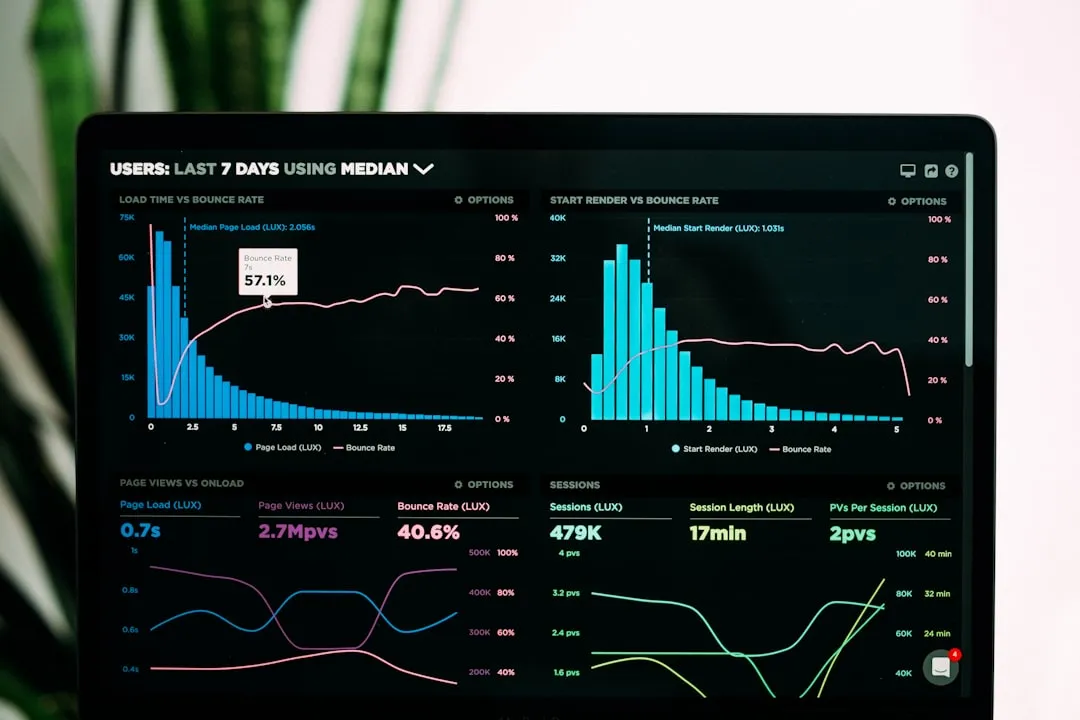“`json{ “seo_title”: “The Strategic Shift: Trump’s Policy on AI Chips”, “subtitle”: “A game-changing realignment that could reshape global AI technology and market dynamics.”, “lead”: “The Trump administration’s strategy on AI chip exports marks a pivotal moment in the global technology arena.”, “content”: “
The Policy Shift: A New Era for AI Technology
The Trump AI chip policy reversal announced this week signals a shift in how advanced computing technologies will flow in global markets. The administration is preparing to dismantle Biden’s complex three-tier regulatory framework. Set to take effect on May 15, 2025, the Biden administration’s Framework for Artificial Intelligence Diffusion promised to create a stratified global technology landscape with significant implications for international trade, innovation, and geopolitical relationships. According to a Commerce Department spokesperson on Wednesday, the Trump administration views the existing approach as fundamentally flawed.
“The Biden AI rule is overly complex, overly bureaucratic, and would stymie American innovation,”
the spokesperson told Reuters, adding,
“We will be replacing it with a much simpler rule that frees American innovation and ensures American AI dominance.”
Understanding the Three-Tier System
The soon-to-be-eliminated rule established a hierarchical structure for global technology access. The first tier consisted of 17 countries plus Taiwan, which enjoyed unlimited access to advanced AI chips. A second tier of approximately 120 countries operated under strict numerical caps limiting their imports. The third tier, which included China, Russia, Iran, and North Korea, faced a complete ban on accessing these technologies. This structured approach aimed to prevent advanced technologies from reaching countries of concern through intermediaries while allowing access for allies and neutral nations. However, critics contended that the complexity of the system created significant compliance burdens, potentially pushing international partners toward alternative suppliers.
A New Approach Takes Shape
Sources cited by Reuters indicate that the Trump administration is considering implementing a global licensing regime supported by inter-governmental agreements instead of the tiered system. This approach would potentially offer more flexibility while maintaining controls over sensitive technology. The timing of the announcement appears strategically significant. Bloomberg reported that these changes are evolving as President Trump prepares for a trip to the Middle East, where countries including Saudi Arabia and the United Arab Emirates have expressed frustration over existing restrictions on their acquisition of AI chips.
Market Reaction and Industry Impact
The news of the policy reversal has already sent ripples through financial markets. Shares of Nvidia, the dominant manufacturer of chips used for training AI models, ended 3% higher on May 7 following the announcement, although they dipped 0.7% in after-hours trading, according to Reuters. Nvidia has consistently opposed the growing number of U.S. restrictions. CEO Jensen Huang argues that American companies should be able to sell into China, predicting it will become a $50 billion market for AI chips in the next few years. However, it’s essential to note that the Trump AI chip policy shift does not signal a complete abandonment of export controls. The administration has demonstrated its willingness to take strong action against China, specifically by banning Nvidia from selling its H20 chip there—a move that cost the company $5.5 billion in writedowns, according to Bloomberg.
Global Winners and Losers
The policy reversal creates a complex map of potential winners and losers in the global technology landscape. Countries like India and Malaysia, which hadn’t faced chip restrictions before the Biden rule was unveiled in January, will see temporary relief. In Malaysia’s case, this could particularly benefit Oracle Corporation, which has plans for a massive data center expansion that would have exceeded limits established by the rules governing AI hardware distribution. Middle Eastern nations also stand to gain. The UAE and Saudi Arabia, which have faced chip export controls since 2023, may now be able to negotiate more favorable terms. Trump has expressed interest in easing restrictions for the UAE specifically and could announce the beginning of work on a government-to-government AI chip agreement during his upcoming visit to the region from May 13 to 16.
Uncertainty Ahead
According to Axios, the Trump administration is currently developing a new control scheme that could emerge as either a new rule or an executive order. This transition period creates significant uncertainty for companies like Nvidia regarding the regulatory environment they’ll face in the coming months. While the new framework takes shape, the administration has indicated it will continue enforcing existing chip export controls. One potential element of the new approach might involve imposing controls specifically on countries that have diverted chips to China, including Malaysia and Thailand, according to a source familiar with the matter.
Balancing Competing Priorities
The Biden administration’s export controls were designed to limit access to chips needed for cutting-edge AI development, particularly focusing on preventing Chinese firms from finding indirect routes to technology that existing export controls prevented them from importing directly. Creating a balanced approach that addresses national security concerns while promoting U.S. commercial interests presents significant challenges. Establishing agreements with a wide range of countries eager to purchase advanced AI chips would require navigating complex diplomatic relationships and potentially creating dozens of separate policy frameworks. The Commerce Department has not provided a specific timeline for when any new rules will be finalized or implemented, only indicating that debate continues on the optimal approach forward.
Implications for the Future
The shift in Trump AI chip policy reflects the administration’s broader emphasis on American competitiveness and innovation while still maintaining control over technologies with national security implications. As officials work to craft a replacement framework, the global AI chip market remains in flux. The implications for technological development, international relations, and corporate strategies in the evolving artificial intelligence landscape are profound and will likely reverberate for years to come.
Conclusion
This ongoing development in AI chip policy is not merely a matter of regulatory adjustment; it defines the future trajectory of American technology leadership in a world increasingly shaped by artificial intelligence. As countries around the globe adjust to these sweeping changes, the stakes have never been higher for both national security and economic competitiveness.”, “excerpt”: “The Trump administration’s strategic policy shift on AI chip exports signals a pivotal moment in global technology dynamics, reshaping international relations and market opportunities.”, “meta_description”: “The Trump administration’s strategy on AI chip exports marks a pivotal moment in the global technology arena.”, “tags”: [“AI chips”, “export controls”, “Trump administration”, “Biden administration”, “global technology”, “Nvidia”, “international trade”, “geopolitical relationships”, “Middle East”, “AI innovation”], “technical_keywords”: [“advanced AI chips”, “export controls”, “global licensing regime”, “inter-governmental agreements”], “key_points”: [ “Trump’s policy shift signals a departure from Biden’s complex export controls.”, “The new approach may favor countries previously restricted under the Biden administration.”, “Nvidia’s market response indicates industry optimism towards relaxed controls.”, “Middle Eastern nations are poised to benefit from the new licensing regime.”, “Uncertainty remains for companies navigating the evolving regulatory landscape.”, “The shift reflects a broader emphasis on American technological dominance.” ], “questions”: [ {“question”: “What are the implications of the Trump AI chip policy shift?”, “answer”: “The shift could enhance American competitiveness and alter global technology dynamics.”}, {“question”: “How might this affect NVIDIA and similar companies?”, “answer”: “NVIDIA may benefit from increased access to markets previously restricted under Biden’s controls.”}, {“question”: “What are the potential winners and losers in this policy change?”, “answer”: “Countries like India and Malaysia may gain, while China and others may still face restrictions.”}, {“question”: “What is the timeline for implementing the new regulations?”, “answer”: “A specific timeline has not been provided; discussions are ongoing.”}, {“question”: “How will this impact U.S.-China relations?”, “answer”: “The policy shift may complicate relations, especially concerning technology transfer and national security.”} ], “sources”: [ {“name”: “Reuters”, “url”: “https://www.reuters.com”, “date”: “2025-05-07”}, {“name”: “Bloomberg”, “url”: “https://www.bloomberg.com”, “date”: “2025-05-08”}, {“name”: “Axios”, “url”: “https://www.axios.com”, “date”: “2025-05-09”} ], “schema”: { “@context”: “https://schema.org”, “@type”: “NewsArticle”, “headline”: “The Strategic Shift: Trump’s Policy on AI Chips”, “alternativeHeadline”: “A game-changing realignment that could reshape global AI technology and market dynamics.”, “description”: “The Trump administration’s strategy on AI chip exports marks a pivotal moment in the global technology arena.”, “datePublished”: “2025-05-09”, “dateModified”: “2025-05-09”, “author”: { “@type”: “Person”, “name”: “Distinguished Technology Analyst” }, “publisher”: { “@type”: “Organization”, “name”: “Tech Innovations Inc.”, “logo”: { “@type”: “ImageObject”, “url”: “https://www.techinnovations.com/logo.png” } }, “image”: [“https://www.techinnovations.com/images/article_image.jpg”], “mainEntityOfPage”: { “@type”: “WebPage”, “@id”: “https://www.techinnovations.com/articles


